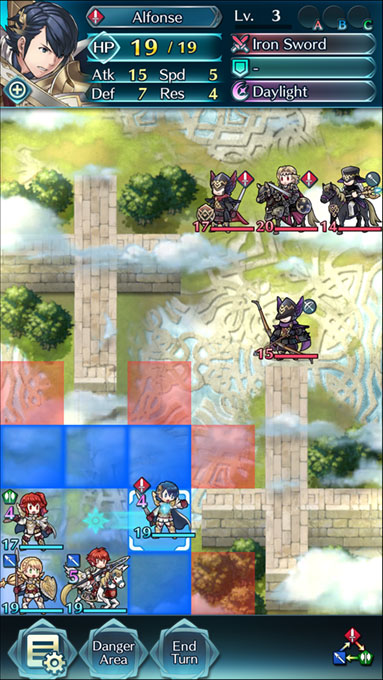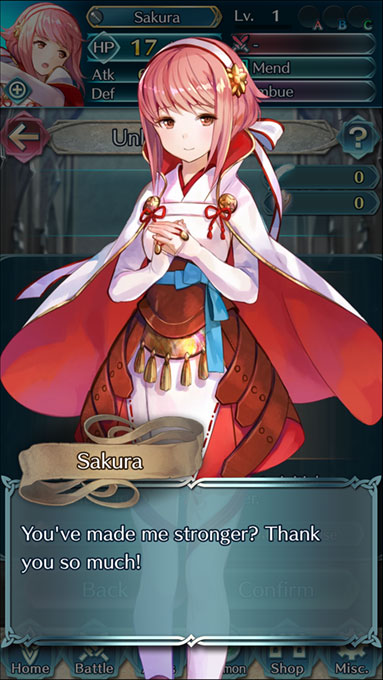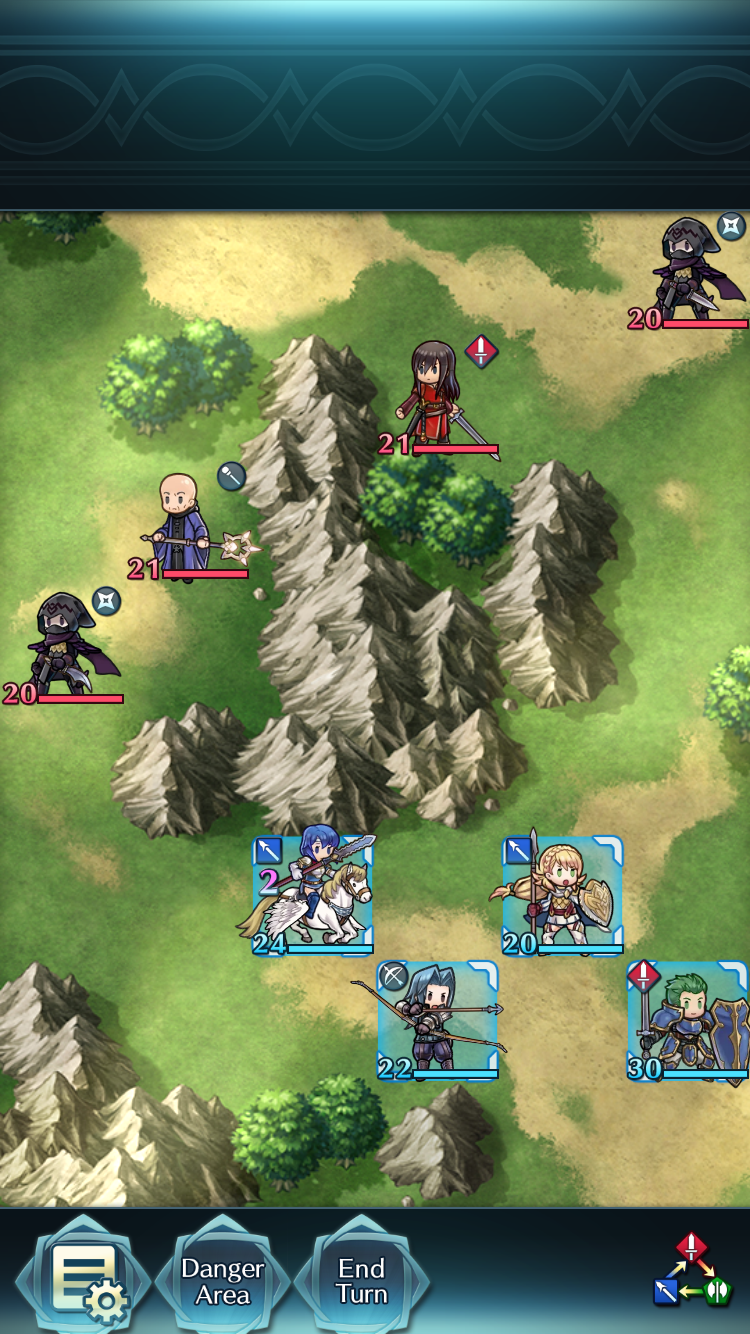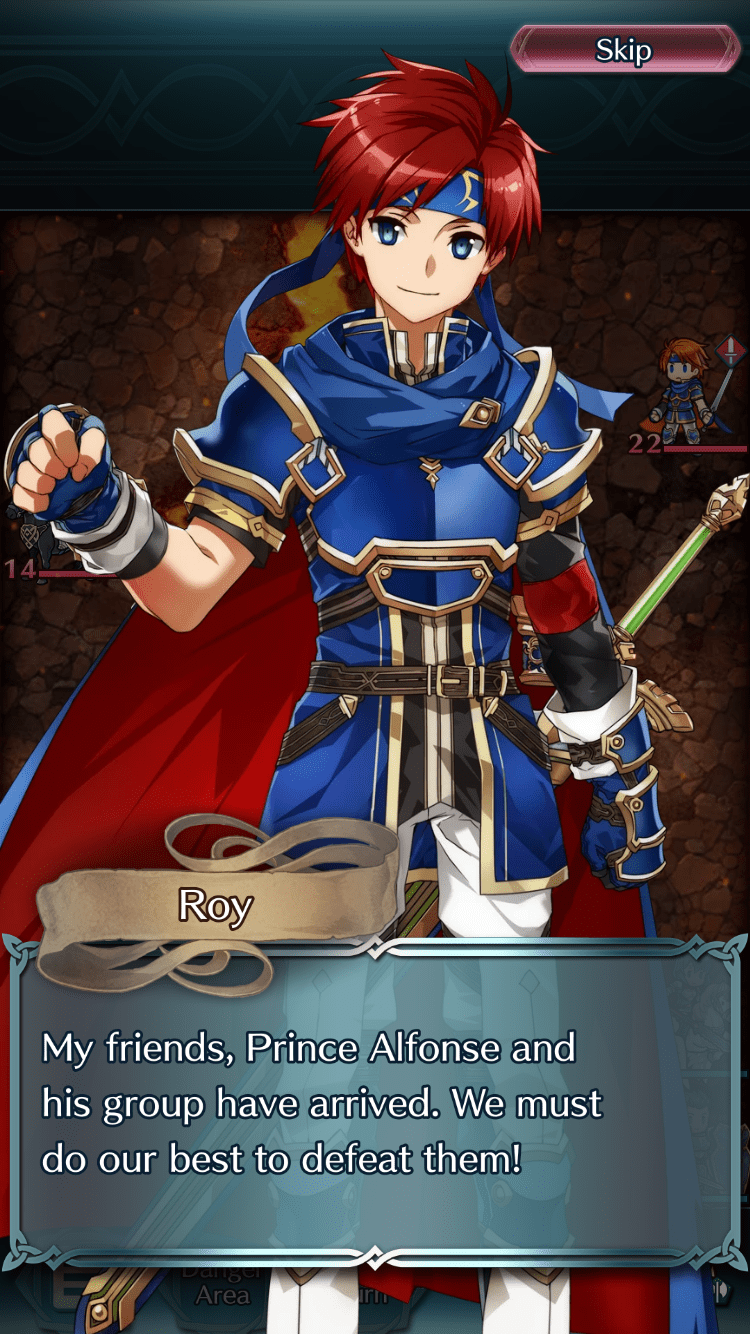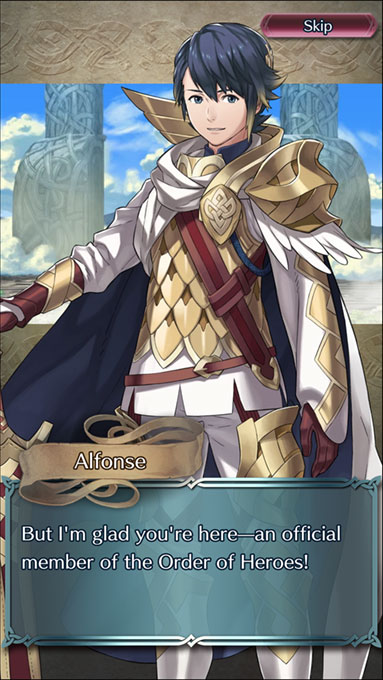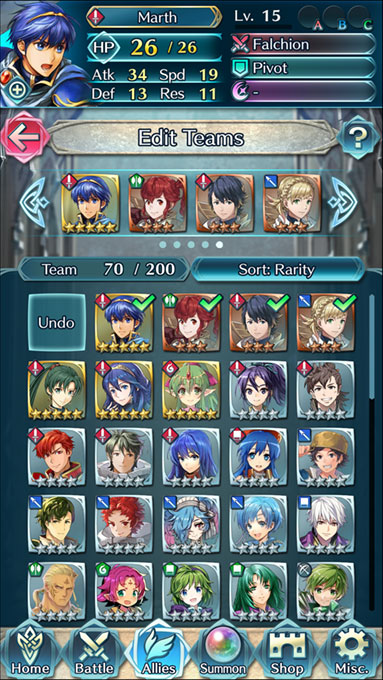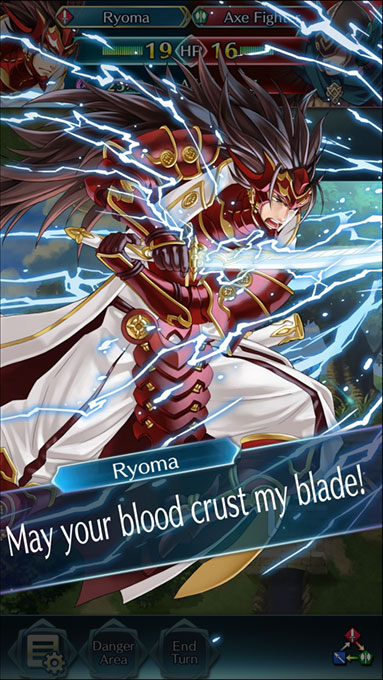All the Fire Emblems, and none of them
Set up as something of a “greatest hits” collection, Fire Emblem Heroes casts you as a “Summoner,” who’s been sucked into a Fire Emblem story with the kingdom of Askr, which must defend itself from cross-dimensional invaders, the Embla empire. The Emblians, using a series of portals, have conscripted the heroes of Fire Emblem games past, and conscripted their heroes.
Luckily, as the summoner, you can do the same. Using “Orbs,” a currency earned by completing missions or spending real money, you can summon characters from the various Fire Emblem games, building up a “dream team” of Fire Emblem fighters, to fight in four-on-four battles as part of a story campaign, or in a “competitive” duel against other players’ starting squads.
“Fire Emblem Heroes looks and sounds the part.”
For Fire Emblem fans, it’s the players, rather than the combat, that serves as the game’s driving force. On the battlefield, the characters don’t really bear much resemblance to their mainline series counterparts — instead, the game relies on a cute, chibi-style art that make the characters feel more… collectible.
Unfortunately for players with specific characters they love, you earn almost all of your new heroes through the summoning process, which doles out characters at random. Though the game offers up plenty of high-level heroes without forcing you to spend a dime, the urge to get Ike or Marth might be too much to not fork over a few bucks.
Strategy, simplified
Free-to-play mechanics aside, the gameplay in Heroes looks and sounds like a Fire Emblem game. In each mission, your heroes square off against a similar number of opponents on a small grid-like map. while small, are nearly identical in design to those seen in the mainline games, and the series’ classic orchestral theme returns, sounding just as regal and motivating as ever before.
Like past Fire Emblems, Heroes matches play out like a souped-up version of chess fused with rock-paper-scissors, each character has different class, which dictates how far they can move, as well as their inherent strengths and weaknesses. As they close in, you must choose which hero you will send forward to attack based on the enemy classes you’re facing. Sword-users are stronger against axe-users, for example, while “red” magic wielders deal extra damage against “green” magic wielders. Much of the game’s strategy stems come from placing your units carefully outside the range of your enemy, waiting to pounce at their first mistake.
Unfortunately, that’s about as strategic as it gets. Compared to past entries in the series, which pushed you to diversify your roster with a variety of sub-classes and variants to game its rock-paper-scissors combat system, Heroes feels softened and stripped down. There’s isn’t necessary a big penalty for any one tactical mistake; you’re still all but guaranteed to complete a mission successfully and with little penalty. Even when you lose all of four of your units, you can spend an orb to revive your party. Compare that to the core Fire Emblems, which are known for their “permadeath” mechanic, where characters disappear completely if they fall in battle.
Fire Emblem Heroes does a great job of getting new players familiar with the series’ enormous cast of characters, as well as the basic pillars of its combat and movement system, but lacks the deep strategy and RPG elements that make the series special. If you love Fire Emblem so much that even the mention of its characters sounds appealing, Heroes offers a wealth of fan service. If you were expecting to find the next Fire Emblem in Heroes, you will likely be disappointed.
Highs
- Feels like Fire Emblem
- Stages only take a few minutes to complete
- Neat art style
Lows
- Far too easy
- Team-building is left up to chance
- Unsatisfying narrative
